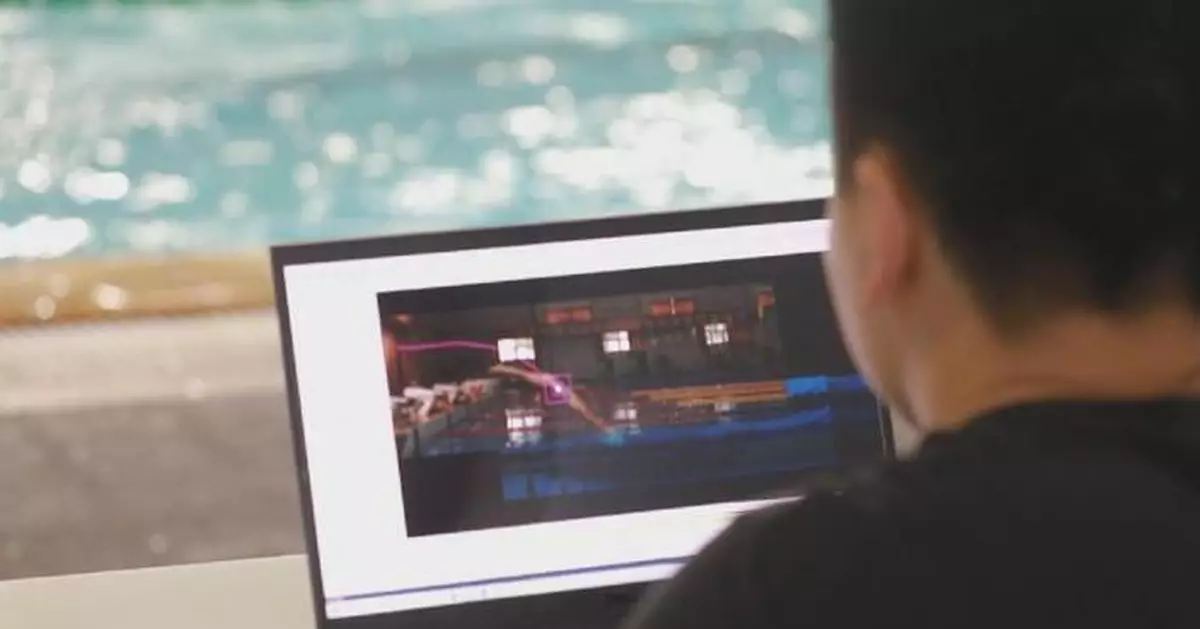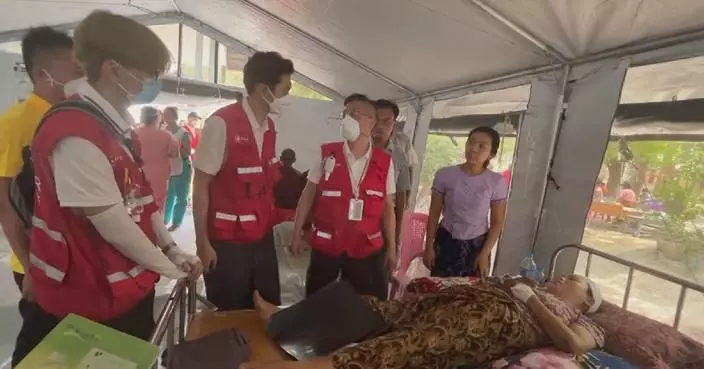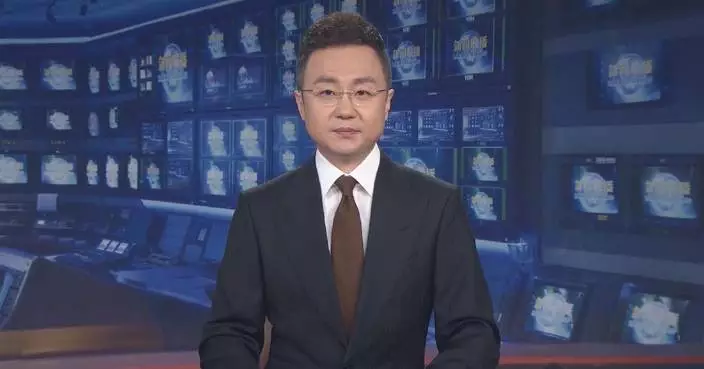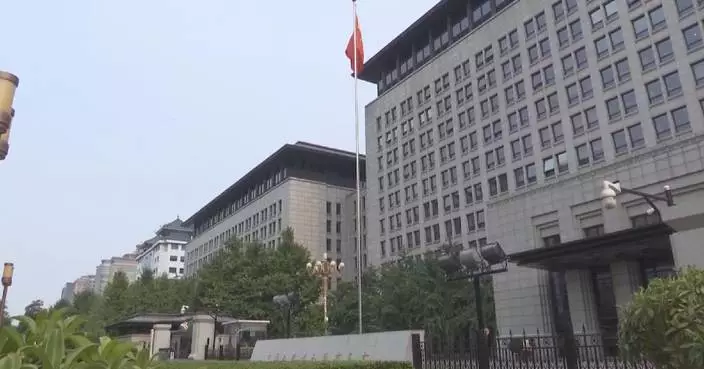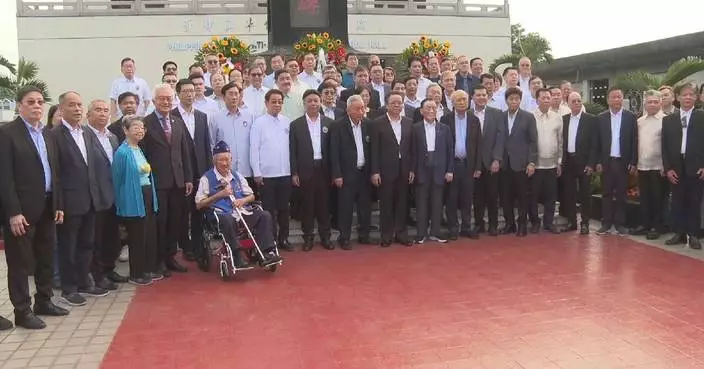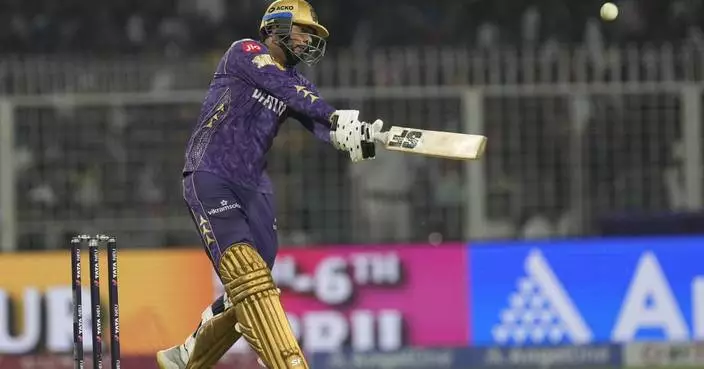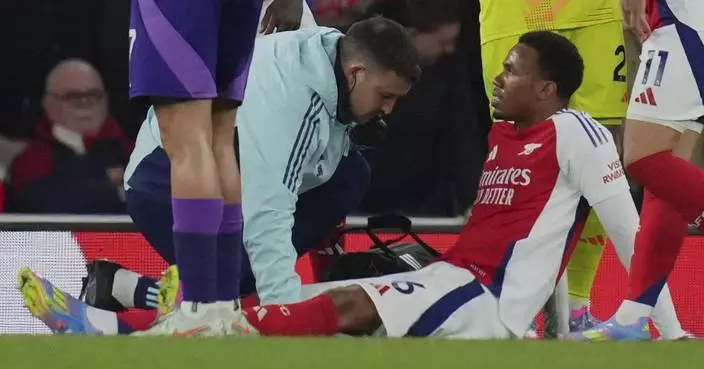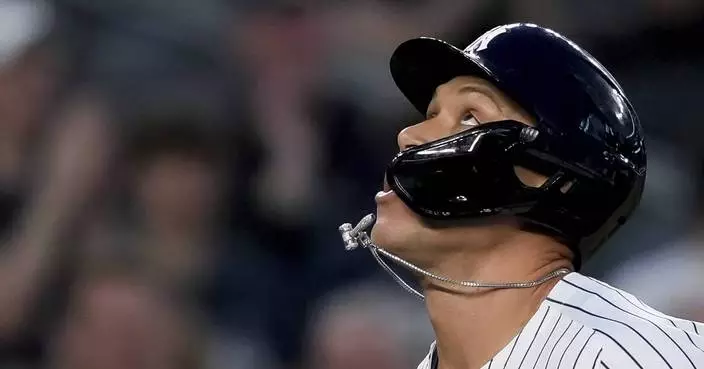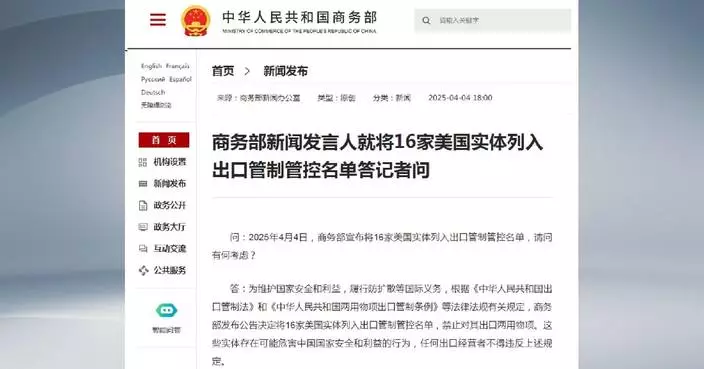By harnessing the power of technology, Paralympic swimmers are gaining unprecedented insights into their performances, which empowers them to chase their dreams of gold in Paris and beyond.
One such device, resembling a fishing rod handle, is being used to measure the instantaneous speed, acceleration, and power of athletes as they move through the water. Attached to the athlete's body on one end and held by researchers on the other, the device transmits real-time biomechanical data to a computer, allowing athletes and coaches to optimize speed distribution.
"The device is connected to the end that I hold by a cord. The chip inside can connect to my computer, allowing us to calculate the distance the cord is pulled each frame, and from that, the acceleration. It can help us analyze the change in velocity over the cycle," said Li Shudong, a teacher at Ningbo University's School of Sports Science.
A more AI-driven system is added for more analysis, with underwater and poolside cameras automatically capturing and stitching together multi-angle footage. Advanced AI models then track key body points and provide objective feedback on the athlete's speed, angles, and trajectories, helping coaches and athletes identify areas for improvement.
"For example, when an athlete enters the water like this – his body forms a 'banana shape' – he will feel an obviously increased drag. The solution is to make the body slightly less than 180 degrees at the point of entry, allowing for a more streamlined entry," Li said in explaining how the system works.
For athletes like Zhang Li, who was born with cerebral palsy and relies only on her arms to propel herself through the water, these technologies are game-changers. Zhang claimed six golds and one silver medal at the Rio 2016 and Tokyo 2021 Paralympics, and is now using the cutting-edge system to strive for faster results.
"The margins between us in the same disability class are just fractions of a second. The technology allows us to more clearly and objectively compare and identify where we can improve, and where we are left behind," said Zhang, a member of China's 2024 Paralympic swimming team.
These advancements are also benefiting visually impaired athletes, like Yang Bozun, a five-time Paralympic swimmer who will be competing in Paris. Yang now trains with the added assistance of earphones, which allow his coach to provide instant feedback and instructions on his movements and timing while in the water.
"Even in the pool, the instructions from the coach come through the earphones clearly. If they notice something off with my movement, they can immediately remind me, and I can correct it at once. Knowing when to accelerate, when to slow down, when to turn, and when to sprint to the wall - this real-time feedback has reduced a lot of injuries. It's a warm comfort for us athletes," said Yang.
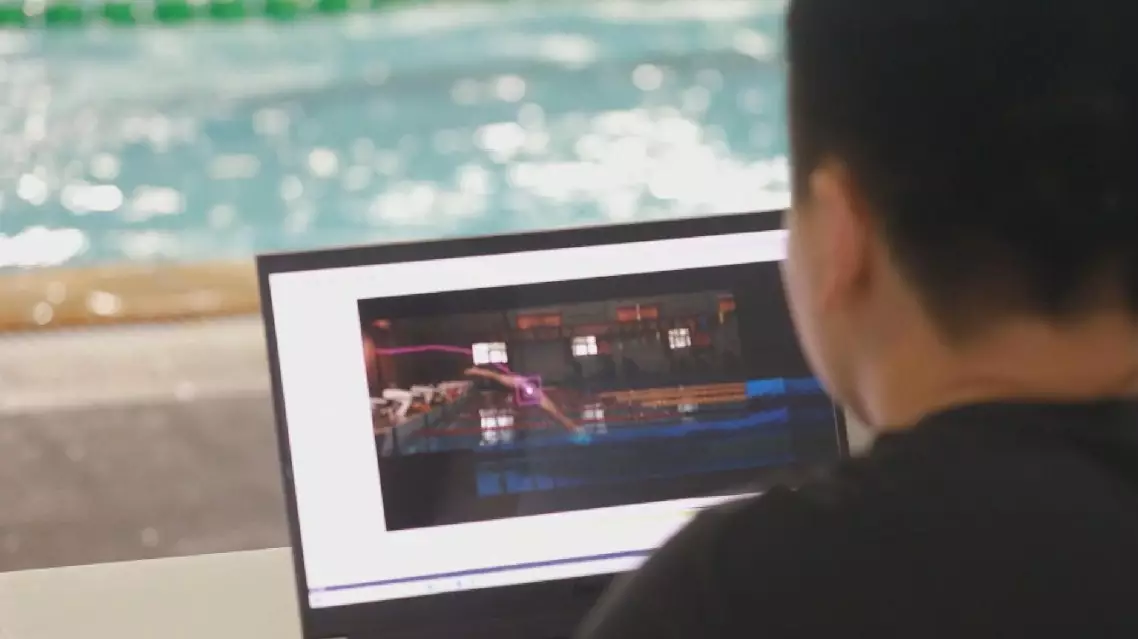
Cutting-edge tech empowers Paralympian athletes ahead of Paris games
As the Qingming Festival approaches this Friday, various traditional folk activities have been held across China, celebrating the rich cultural heritage of the occasion.
With a 2,500-year history, Qingming Festival, or the Festival of Pure Brightness, observed in early April, uniquely combines ancestral worship with the celebration of spring. Falling on the 15th day after the spring equinox, this ritual-rich observance reflects China's enduring values of ancestral veneration and inspires deep introspection about what gives life meaning.
In Sijia Village, Huayin City, northwest China’s Shaanxi Province, a unique swing festival is held to mark the occasion. Eighteen different types of traditional swings, such as the spinning wheel swing, the Bagua swing reminiscent of a rotating carousel, and the balance swing designed for two people, have attracted many visitors.
Historically, Sijia Village served as a military post guarding the strategic Tongguan pass, a former mountain pass and fortress located south of the confluence of the Wei and Yellow Rivers. The swing tradition in the village has its origins in military training exercises like climbing and river crossing. The local swing culture further developed as regional trade flourished, eventually evolving into the "swing festival" that continues today.
"It's very exciting and tests your skill, endurance, and most importantly, your arm strength. You need to maintain balance," said Qu Xiangyang, a visitor.
In Rudong County, Nantong City, east China's Jiangsu Province, another traditional Qingming activity takes place - kite flying.
Flying kites as a way of making wishes is an age-old Qingming custom in this region. As a result, the Qingming Festival in Nantong is also known as the "Kite Festival."
The local Banyao whistling kite making skills is listed as one of the first national intangible cultural heritage items.
According to a folk culture expert, people traditionally write the names of diseases or misfortunes on paper, attach it to a kite, and release it into the sky. This practice is believed to drive away illness and disaster, while also serving as a way to make wishes.
In south China's Guangdong Province, a large tug-of-war competition is underway in Maoming City. Teams from different towns and streets are competing, attracting many locals to cheer on their teams.
Tug-of-war, which originated during the late Spring and Autumn period (770 BC - 476 BC), became part of Qingming customs during the Tang Dynasty (618-907). Emperor Xuanzong of the Tang Dynasty once organized large-scale tug-of-war competitions for the festival.
"Tug-of-war became very popular in the Tang Dynasty, even emerging as the national sport. It originated in the Jingchu region and later spread across the country. In ancient Lingnan (Southern China), tug-of-war games were a common tradition. Through these events, people seek to pray for peace, prosperity, and abundant harvests," said Yao Guojun, vice dean of the College of Arts and Law, Guangdong University of Petrochemical Technology.
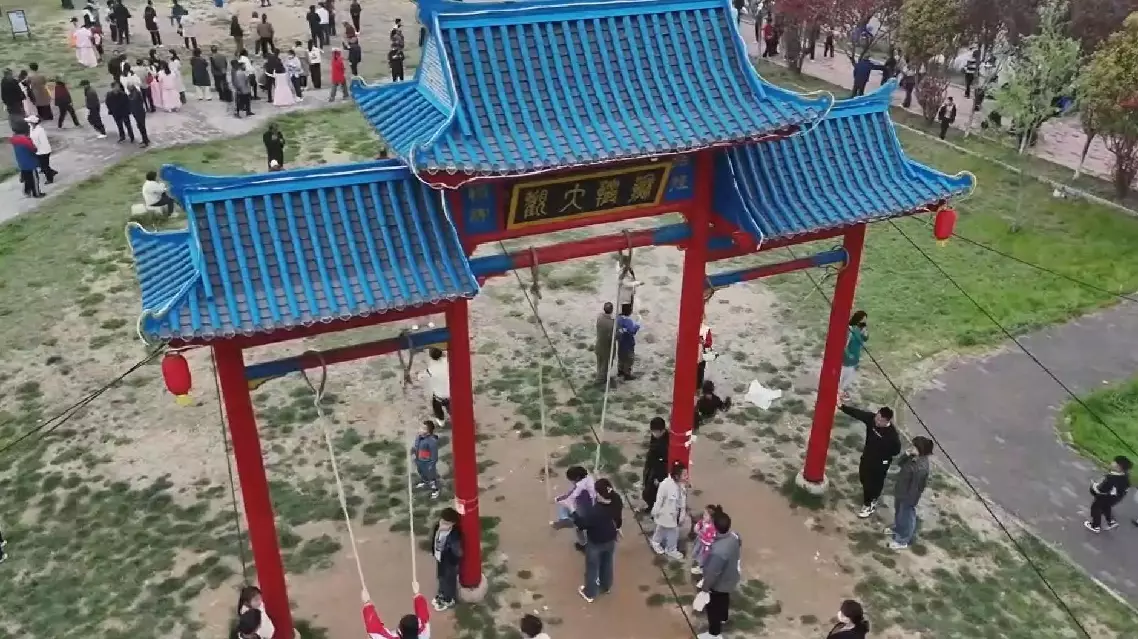
Traditional folk activities held for Qingming Festival



